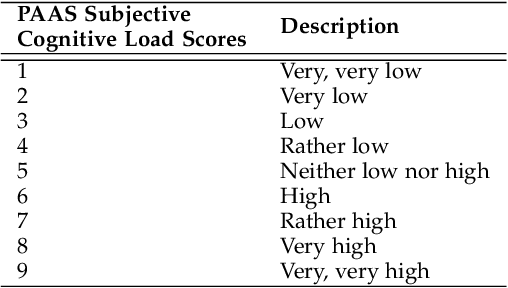Multimodal Brain-Computer Interface for In-Vehicle Driver Cognitive Load Measurement: Dataset and Baselines
Paper and Code
Apr 09, 2023



Through this paper, we introduce a novel driver cognitive load assessment dataset, CL-Drive, which contains Electroencephalogram (EEG) signals along with other physiological signals such as Electrocardiography (ECG) and Electrodermal Activity (EDA) as well as eye tracking data. The data was collected from 21 subjects while driving in an immersive vehicle simulator, in various driving conditions, to induce different levels of cognitive load in the subjects. The tasks consisted of 9 complexity levels for 3 minutes each. Each driver reported their subjective cognitive load every 10 seconds throughout the experiment. The dataset contains the subjective cognitive load recorded as ground truth. In this paper, we also provide benchmark classification results for different machine learning and deep learning models for both binary and ternary label distributions. We followed 2 evaluation criteria namely 10-fold and leave-one-subject-out (LOSO). We have trained our models on both hand-crafted features as well as on raw data.
 Add to Chrome
Add to Chrome Add to Firefox
Add to Firefox Add to Edge
Add to Edge